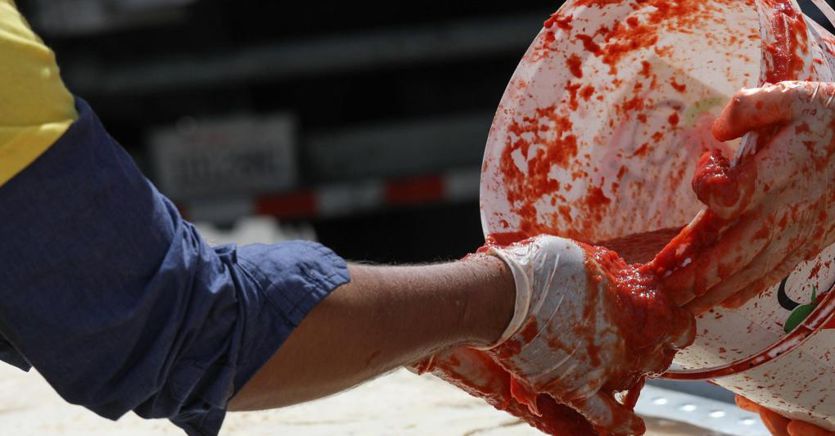The Prosecutor’s Office of Nocera Inferiore and the Carabinieri for the Protection of Agri-food have urgently seized 821 tons of semi-processed tomatoes, worth about one million euros, believed to be contaminated by pesticides. The levels of chemical compounds detected in the tomato were such as to make the investigators believe the risk of harm to human health was concrete. The goods were stored in thousands of metal drums each containing an average of 250 kilos of product waiting to be processed and packaged, usually in jars and tubes of different sizes, for subsequent sale on the market – mainly abroad – as double or triple tomato concentrate. . Although large, the quantity of semi-processed tomatoes seized represents only what remains of an even more important batch: it has been ascertained, in fact, that a few hundred tons have already been marketed in EU and non-EU countries.
“The seizure of tomato concentrate from Egypt confirms the alarm for the importation of low quality foods, with the risk that they will be passed off as made in Italy”, writes Coldiretti in a note. In fact, the operation follows in a few weeks the seizure of thousands of tons of foreign tomato concentrate inserted in the production cycle as a 100% Tuscan tomato, which involved Petti. In the first two months of 2021, imports of tomato products into Italy increased by as much as 23%, especially from China, while the quantities from Egypt practically doubled (+ 83%) compared to last year.
Loading…
The operation of the Carabinieri of Nocera took place right after the UN World Food Health Day, which ranks Italy among the safest countries in the world. In our country, out of the total of 297 food alarms that occurred in 2020 based on the processing of the Rapid Alert System (Rassf), only 51 concerned products with national origin. “In other words – writes Coldiretti – over eight out of ten products dangerous for food safety come from abroad”.
